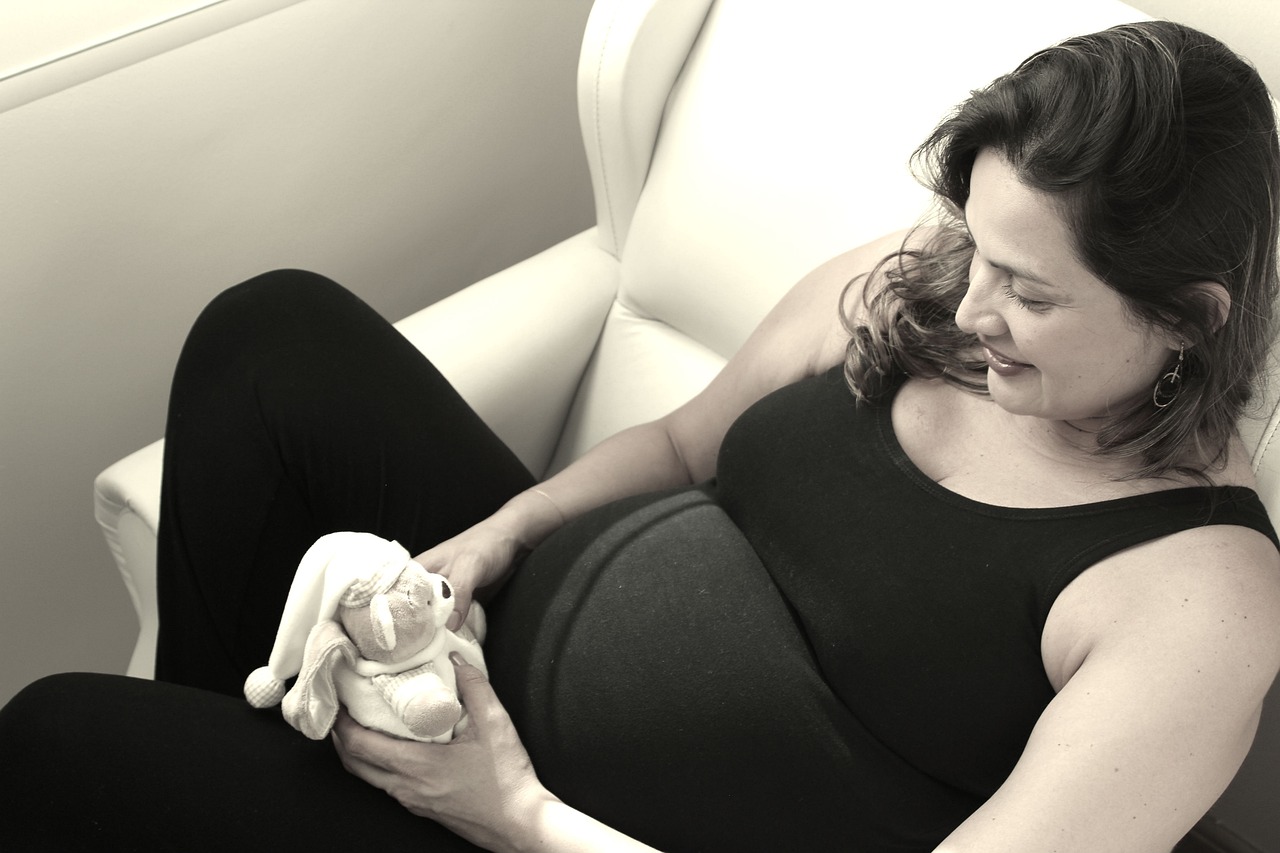When it comes to determining the right time to take a pregnancy test after intercourse, it’s essential to understand the factors that can influence the accuracy of the results. Here are some key points to consider:
- Timing of Ovulation: Ovulation plays a crucial role in the conception process. Taking a pregnancy test too soon after intercourse may not yield accurate results as it takes time for the fertilized egg to implant in the uterus and for the body to start producing the pregnancy hormone hCG.
- Menstrual Cycle Length: The length of your menstrual cycle can impact when you should take a pregnancy test. Women with irregular cycles may need to wait longer before testing to ensure reliable results.
- Type of Pregnancy Test: Different types of pregnancy tests have varying levels of sensitivity. Some tests can detect hCG in the body earlier than others, allowing for early detection of pregnancy.
It’s recommended to wait at least one week after a missed period to take a pregnancy test for the most accurate results. However, if you suspect you might be pregnant and can’t wait, there are early detection tests available that claim to provide reliable results even before a missed period.
Remember, the timing of when to take a pregnancy test after intercourse can vary for each individual based on their unique circumstances. Consulting a healthcare provider for guidance on the best time to test can offer valuable insights and ensure the most accurate interpretation of the results.

Timing of Pregnancy Tests
When it comes to the timing of pregnancy tests, it’s crucial to understand how soon after intercourse you can take one for accurate results. Different types of pregnancy tests are available, each with varying detection times for the pregnancy hormone hCG in the body after intercourse.
Here are some key points to consider regarding the timing of pregnancy tests:
- Some tests can detect hCG levels as early as 7-10 days after conception.
- For the most accurate results, it is recommended to wait until after a missed period to take a test.
- Early detection tests claim to provide results before a missed period, but their reliability may vary.
Understanding the timing of pregnancy tests is essential in determining when to take a test based on your individual circumstances. Factors such as the length of your menstrual cycle, ovulation timing, and the sensitivity of the test can all impact the accuracy of the results.
By knowing the timing of different types of pregnancy tests and considering these factors, you can make an informed decision on when to take a test after intercourse. It’s important to follow the instructions provided with the test and consult a healthcare provider if you have any concerns or questions about the results.

Factors Affecting Test Accuracy
When it comes to the accuracy of pregnancy tests, several factors play a crucial role in determining the reliability of the results. Understanding these factors is essential for individuals seeking to confirm or rule out a potential pregnancy. Let’s delve into the key elements that can influence the accuracy of pregnancy tests:
- Length of Menstrual Cycle: The length of a woman’s menstrual cycle can impact the timing of ovulation and, consequently, the accuracy of a pregnancy test. Women with irregular cycles may find it challenging to pinpoint the ideal time for testing.
- Ovulation Timing: Knowing the approximate date of ovulation is vital for accurate testing. If intercourse occurs too close or too far from ovulation, it can affect the reliability of the results.
- Pregnancy Test Sensitivity: The sensitivity of the pregnancy test itself is a critical factor. Some tests are designed to detect lower levels of hCG, offering early detection, while others may require higher hormone levels to show a positive result.
Considering these factors, it becomes evident that the accuracy of a pregnancy test is not solely dependent on taking the test but also on understanding one’s menstrual cycle, ovulation patterns, and the type of test being used. By being aware of these variables, individuals can make more informed decisions regarding when to take a pregnancy test after intercourse.

Early Detection Tests
When it comes to early detection tests for pregnancy, there are a variety of options claiming to provide accurate results even before a missed period. These tests are designed to detect the presence of the pregnancy hormone hCG in the body shortly after intercourse. However, it’s important to note that while these tests may offer early detection, their reliability can vary based on individual factors.
One popular type of early detection test is the **early response pregnancy test**, which is said to be able to detect hCG levels as early as six days before a missed period. These tests typically boast high sensitivity levels, allowing for early detection of pregnancy. However, it’s essential to follow the instructions carefully and consider the potential for false positives or negatives.
Another option is the **digital early detection pregnancy test**, which provides a clear digital result rather than relying on traditional line indicators. These tests are user-friendly and offer quick results, making them a popular choice for those seeking early confirmation of pregnancy.
While early detection tests can offer a sense of reassurance and prompt results, it’s crucial to remember that their accuracy may be influenced by factors such as the concentration of hCG in the urine and the timing of implantation after fertilization. Consulting a healthcare provider for confirmation and guidance is always recommended, especially if there are concerns about the results or the possibility of a false reading.

Recommendations for Testing
When it comes to testing for pregnancy after intercourse, timing is crucial for accurate results. The recommendations for testing vary depending on the type of pregnancy test used, the regularity of the menstrual cycle, and individual factors that may impact the results. Here are some key guidelines to consider:
- 1. Choose the Right Test: Select a reliable pregnancy test that suits your needs. There are different types available, including urine tests and blood tests. Some tests are more sensitive and can detect pregnancy earlier than others.
- 2. Wait for the Ideal Time: It is advisable to wait at least one week after a missed period to take a pregnancy test for more accurate results. Testing too early may result in a false negative.
- 3. Follow Instructions Carefully: Read the instructions provided with the pregnancy test carefully and follow them step by step. Improper usage can lead to inaccurate results.
- 4. Test in the Morning: For best results, it is recommended to take a pregnancy test in the morning when the hCG hormone concentration is at its highest in urine.
- 5. Consider Repeat Testing: If the first test is negative but you suspect you might be pregnant, consider repeating the test after a few days or consulting a healthcare provider for further guidance.
By following these recommendations and being mindful of the factors that can influence the accuracy of pregnancy test results, individuals can make informed decisions about when and how to test for pregnancy after intercourse.

Consulting a Healthcare Provider
When it comes to interpreting the results of a pregnancy test, consulting a healthcare provider is crucial for accurate guidance and support. Healthcare professionals have the expertise to explain the results in detail, address any concerns, and provide appropriate advice based on individual circumstances. Here are some key reasons why consulting a healthcare provider is essential:
- Professional Interpretation: Healthcare providers are trained to interpret pregnancy test results accurately, taking into account various factors that may influence the outcome.
- Personalized Advice: A healthcare provider can offer personalized advice based on your medical history, menstrual cycle regularity, and any other relevant factors that may impact the test results.
- Confirmation and Follow-Up: Consulting a healthcare provider allows for confirmation of the pregnancy status and enables timely follow-up care to ensure the well-being of both the mother and the baby.
- Guidance on Next Steps: In case of a positive result, a healthcare provider can guide you on the next steps to take, such as prenatal care, lifestyle adjustments, and further testing if necessary.
Remember, healthcare providers are there to support you through this process and provide the necessary information and care to help you make informed decisions regarding your reproductive health. Don’t hesitate to reach out to a healthcare professional for guidance and support when it comes to pregnancy testing and related concerns.